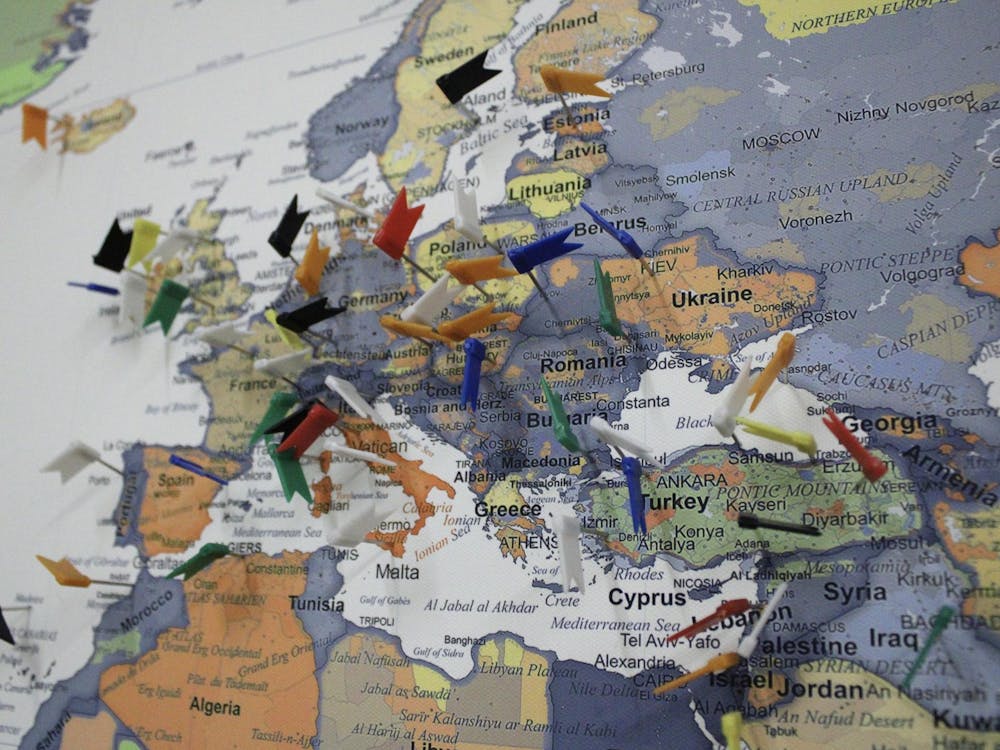EVERYONE makes mistakes. Even those in leadership positions. Even those who should know better. Though mistakes may lack intrinsic value in and of themselves, learning from mistakes and learning to take responsibility for mistakes helps prevent subsequent blunders.
During the most recent elections process, the Honor Committee made a mistake. They wanted to include a referendum on the spring ballot allowing students to vote on whether seriousness should be eliminated from evaluating cheating cases during jury trials. The Committee submitted their referendum to Student Council prior to last week's election, but the Committee did not pass the resolution in question within two weeks of the election date.
The Committee's constitution dictates a minimum two-week period between passing a resolution in Committee and sending that resolution to the student body as a referendum. The required two-week window allows the Committee time to educate the University community about the referendum before voting commences. The Committee's referendum did not appear on the ballot last week, as per their own constitutional constraints.
Though a frustrating way to end months of debate, the Committee then should have acknowledged their mistake and focused their energy on ensuring that the resolution does reach the ballot in the fall. Instead, Committee members lobbied Council leaders to set up a special election to accommodate the last-minute referendum.
Council observes its own set of election rules, however -- its constitution requires that referenda appear, at the latest, in the election directly following submission. Asking Council to hold a special election to decide the Committee's referendum meant asking Council to act in opposition to their constitution -- an unacceptable precedent.
Rather than accepting Council's decision not to hold a special election, the Committee opted to circumvent the restrictions of Council's elections process. On Sunday, the Committee created a by-law that allows Committee-administered elections in the case of referenda. The Committee could not convince Council to disregard its constitutional constraints by holding a special election, so Committee members decided to take over, violating their own constitution in the process.
According to the Committee's constitution, all honor elections fall under the Student Council elections process. Therefore, "referendum elections" -- so-called in the Committee's constitution -- fall into the broader elections category. Council has administered referendum elections, along with candidate elections, for the past 30 years. Shifting the locus of power for referendum elections away from Council is a significant change in the Committee's interpretation of its constitution.
|
Under this new bylaw, the Committee can bring a referendum to the student body whenever they deem it crucial to do so. Achieving sufficient voter turn-out -- which is difficult enough to do during the bi-yearly Council elections -- will pose a problem for the Committee, as will many other intricacies of overseeing an elections process. Without access to the Student Council elections Web site and other resources, the Committee will be faced with developing its own voting procedure during the two weeks following spring break. The referendum election is now scheduled for April 3-7, allowing little more than two weeks to educate students about the referendum.
The Committee has jumped the gun in its drive to see this referendum go to the student body before the end of the semester. If the issue of removing seriousness from cheating cases is as crucial as the Committee believes, it should be easy to revive it in time for Council's fall elections. The extra time also would allow the Committee to ensure thorough and wide-spread education on the referendum. The honor code affects more than just the students on central Grounds. Educating 18,000 students from 10 different schools in two weeks is too imposing a task, even for a group of highly-competent honor educators.
This bylaw change -- questionably constitutional, at best -- signifies a rejection by the Committee of Council's election protocol. What might happen if the University Judiciary Committee also decided it needed power over its own elections? What if the student body was asked to vote on referenda, however crucial, each month of the academic year? Yes, this carries the concept of running independent elections to an extreme. But it's a consequence that must be considered.
The haste the Committee has shown in attempting to put this referendum to a vote remains troublesome. The in-coming Committee members should re-evaluate the bylaw to determine if it is, in fact, in violation of the Committee's constitution.






